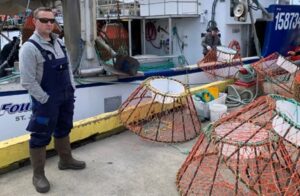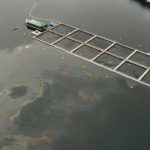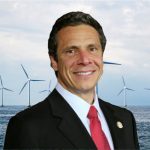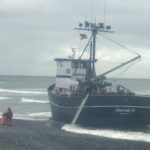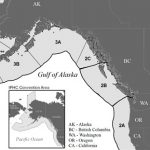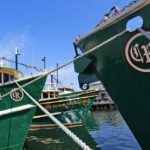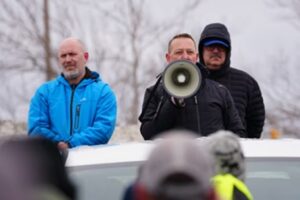FISH-NL renews call for halt to seismic testing – ‘If plankton isn’t protected you might as well say goodbye to the fish’

FOR IMMEDIATE RELEASE Tuesday, Jan. 8th, 2019
The Federation of Independent Sea Harvesters of Newfoundland and Labrador (FISH-NL) is once again calling on the Canada/Newfoundland and Labrador Offshore Petroleum Board (C-NLOPB) to suspend offshore seismic work in light of new research that reveals plankton productivity has plunged.
The research by the federal Department of Fisheries and Oceans (DFO) doesn’t link the dramatic and persistent drop in plankton to seismic activity, but other research has found the intense acoustic signals may damage the critical elements of the food chain.
“It’s highly coincidental that as seismic activity ramped up plankton productivity plunged,” says Ryan Cleary, President of FISH-NL. “Seismic activity may be necessary for offshore oil and gas development, but it must not come at the expense of our wild fisheries and marine ecosystem — cutting off our nose to spite our face.”
In late December, a senior scientist with DFO in St. John’s revealed that plankton productivity in waters around Newfoundland and Labrador has plunged by 50 per cent in the past four or five years. Plankton — including zooplankton (tiny animals like krill) and phytoplankton (tiny plants) — live near the ocean’s surface and form the base of the marine food chain.
While the senior DFO scientist said the cause of the plankton decline is unknown, research out of Australia in June 2017 found that air gun pulses increased zooplankton mortality rates by up to 60 per cent, and over a much greater range than previously thought.
Seismic activity in waters around Newfoundland and Labrador has increased dramatically in recent years. The amount of money spent by Nalco Oil and Gas for its seismic data program more than doubled in 2015 to $28.6 million from $13.9 million the year previous; and has remained consistently high since then.
In fact, during the summer of 2017 Natural Resouces Minister Siobhan Coady described the 3D seismic program off Newfoundland and Labrador as one of the largest in the world, and the 2D program was “unrivalled in the modern exploration era.”
In 2018, the provincial government ordered Nalcor, the publicly-owned energy corporation, to spend $20 million on seismic data collection when Nalcor had no intention of doing so.
In June 2017, FISH-NL wrote the C-NLOPB recommending the board proceed with extreme caution and immediately suspend seismic work off Newfoundland and Labrador until the activity can be reevaluated.
In response, Scott Tessier, Chair and CEO of the C-NLOPB, wrote back to say “DFO is not of the view that immediate action is necessary with respect to local seismic surveys.”
On Monday, FISH-NL wrote Tessier once again to ask that the C-NLOPB proceed with extreme caution, and immediately suspend seismic work in waters off the province.
“If plankton isn’t protected you might as well say goodbye to the fish,” said Cleary, adding it’s ironic that DFO has adopted a so-called precautionary approach in fisheries management, which is about being cautious when scientific knowledge is uncertain.
“There’s nothing precautionary about super-sized seismic activity,” Cleary said. “It’s just the opposite.”
Contact Ryan Cleary: 682 4862


































